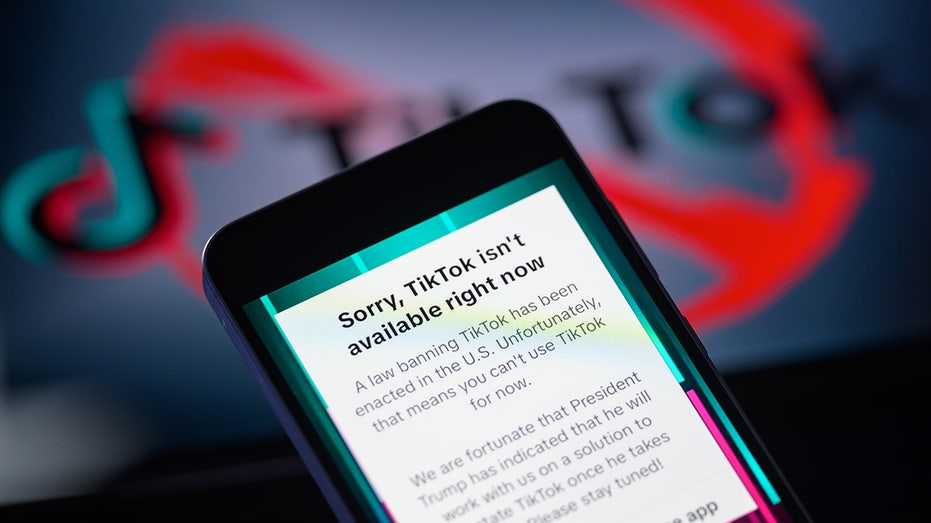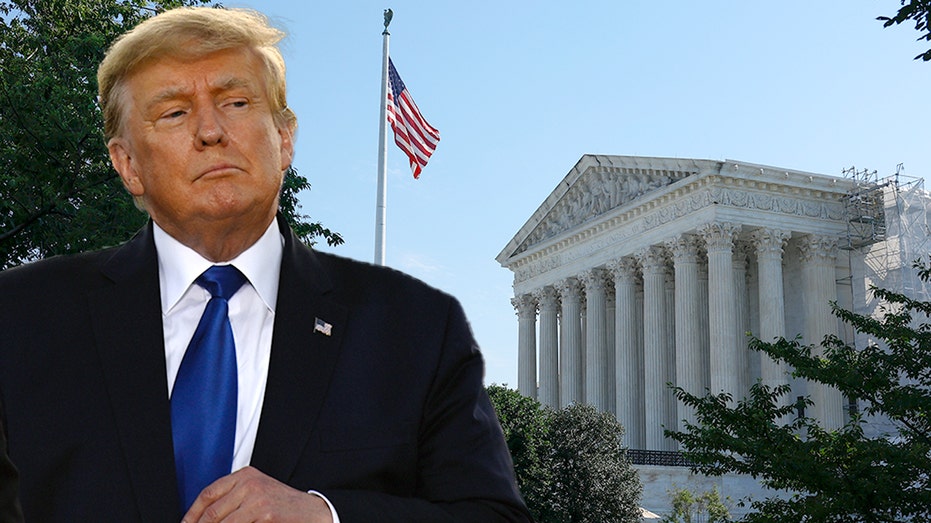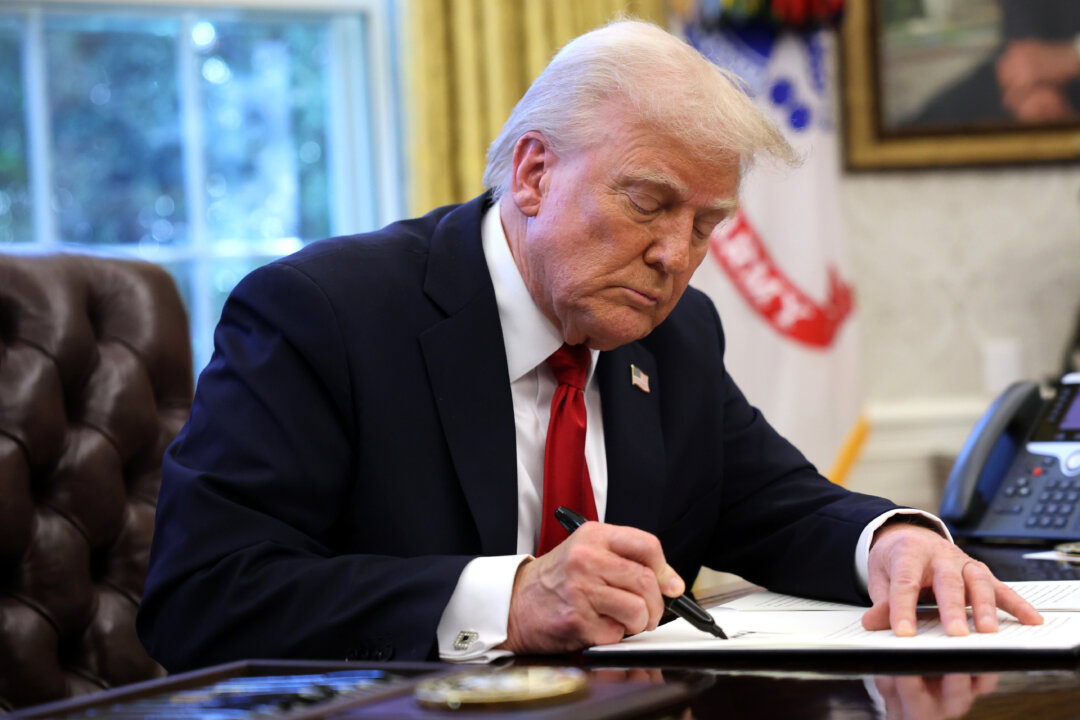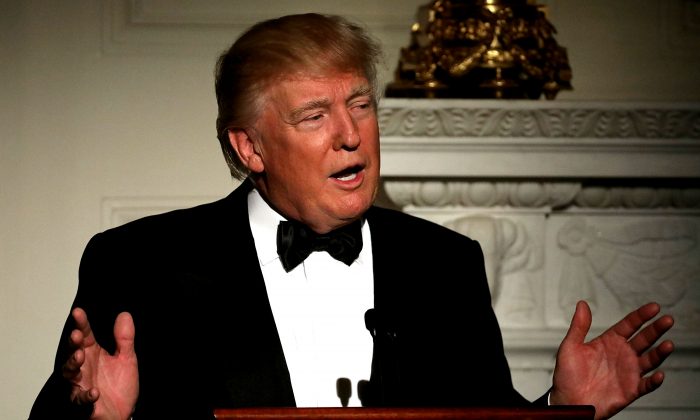President Donald Trump is facing a political firestorm thanks to a decision by some of his top national security officials to engage in some friendly text messaging about an impending military operation in Yemen.
Having that conversation on the commercial app Signal may have been a bad idea on its own, but accidentally including Atlantic editor Jeffrey Goldberg made it far worse — not just politically, but potentially legally.
Many of the Trump Cabinet officials involved — including Defense Secretary Pete Hegseth, National Security Adviser Michael Waltz and Secretary of State Marco Rubio — were among those who called Hillary Clinton reckless for using a private email account and server while she was secretary of State. Democrats,including Clinton, were eager to claim hypocrisy.
White House Press Secretary Karoline Leavitt has insisted that no “war plans” were discussed in the messages. But will there be any legal consequences for the Trump officials’ unorthodox use of Signal or for the disclosures to Goldberg?
Here’s what to know about the laws that may or may not have been broken — and the possible fallout.
1
Did the Signal chat violate the Espionage Act, and will anyone be prosecuted?
There’s certainly an argument that using Signal for these kinds of chats was so careless that it violated the Espionage Act — but when it comes to someone actually being prosecuted, I wouldn’t hold your breath.
It is true that the Espionage Act makes it a crime punishable by up to 10 years in prison to handle national security secrets with such “gross negligence” that it allows them to fall into the hands of an unauthorized person. In theory, that should be worrisome for those texting war plans to a journalist.
Trump administration officials insisted Tuesday that the contents of the chats were unclassified, although Goldberg says that claim is hard to square with the kind of information he saw about targets, weapons and timing of planned U.S. strikes.
Technically, one can violate the Espionage Act even by disclosing unclassified information if that information pertains to the national defense and is “closely held.” But such cases are rare.
Because the wording of the Espionage Act is exceedingly broad, and expansive readings arguably intrude on the First Amendment, prosecutors don’t often prosecute unintentional disclosures, althoughthose incidents can threaten careers.
Goldberg has also said the chats included the name of an “undercover” CIA officer, which he withheld. Another federal law,the Intelligence Identities Protection Act, makes it a crime to disclose the identity of a covert agent but only if one does so intentionally.
CIA Director John Ratcliffe said Tuesday that the CIA officer is one of his aides and she’s not undercover. He called his use of her name in the chats “completely appropriate.”
The other big reason Trump officials can likely breathe easier is it would require the Justice Department to prosecute them — and with the White House downplaying the incident, it seems unlikely Attorney General Pam Bondi is going to take action. FBI Director Kash Patel told senators Tuesday he had no “update” for them when asked if the FBI was investigating.
2
Is it legal for officials to use Signal for official communications?
It’s not automatically illegal, but it can easily run afoul of the main laws governing recordkeeping: the Presidential Records Act and the Federal Records Act, which set rules dictating which records must be preserved and for how long.
The frequently used “disappearing messages” feature on Signal could pose a particular problem.A screenshot Goldberg published shows this particular chat was set to automatically delete messages after four weeks.
A law President Barack Obama signed in 2014 requires that federal employees who use personal accounts to discuss official business to copy those messages to an official account within 20 days so they can be preserved. That means the officials involved in these discussions on Signal still have time to comply since these messages came about 10 days ago.
Of course, what appears to have been the casual use of Signal by high-level Trump administration officials inside and outside the White House raises questions about earlier chats they may have had about official business and whether they were dutifully transferring all or any of those messages to official channels as the law requires.
3
Which agencies would look into this, and do they have any conflicts of interest?
Federal agencies are typically required to report to the Justice Department unauthorized disclosures to the media of classified information, typically using this 11-part questionnaire. Of course, if the Trump administration insists the information shared in the Signal wasn’t classified, then there would be no need to report it.
Allegations that federal agencies are failing to preserve or maintain their records as required by law are fielded by the National Archives and Records Administration, which helpfully catalogs such complaints. One complication: Rubio’s role as a reported participant in the Signal chats about the strikes on the Houthis. While Rubio’s most prominent title is as secretary of State, he’s also moonlighting as acting head of the National Archives, installed after Trump fired the Senate-confirmed Biden appointee to that post.
A National Archives spokesperson did not respond Tuesday to questions about whether the agency is looking into officials’ use of Signal and whether Rubio plans to recuse himself from any such inquiry.
4
Is this the same thing that Hillary Clinton did?
There are a lot of parallels between the Trump officials’ use of Signal and Clinton’s use of a private email account and server for her official communications during her time as secretary of State. Both seem to underscore how cumbersome and inconvenient U.S. government systems are for officials traveling overseas or for those who need to discuss sensitive information at off hours. (Top officials often have a phonebooth-like sensitive compartmented information facility at their homes for these situations.)
We don’t know all the details of the sensitivity of the information exchanged in either case. Clinton and her aides occasionally sent or received emails about drone strikes in Pakistan. Many of the discussions deemed classified, but not marked as such at the time, were about press reports on local residents blaming the U.S. for damage.
In theory, the Signal chats should be more secure than an ordinary email account because of the app’s end-to-end encryption. However, the National Security Agency warned just last month that Signal can be compromised. Snooping programs installed on someone’s device could likely capture Signal chats. And, of course, adding an unintended person to the chat would compromise it no matter how secure the technology.
Some critics say the failure to prosecute high-level officials for their cavalier handling of national security secrets makes it harder to get tough sentences for rank-and-file employees accused of similar breaches. Defense attorneys arguing for leniency for their clients often note the lack of accountability for senior officials who were not prosecuted, charged only with a misdemeanor or pardoned for their conduct.
5
Do Jeffrey Goldberg and The Atlantic face any legal exposure?
Legal experts say Goldberg and his magazine are unlikely to face legal consequences over the episode, primarily because he was a passive recipient of the war plans. First Amendment advocates believe the Trump administration would like to charge a journalist with an Espionage Act violation — but this isn’t a case where it's really feasible to do so.
In fact, some argue Trump’s Justice Department already did deploy the law against a journalist during his first term when it obtained an indictment of Wikileaks founder Julian Assange. Last year, he pleaded guilty to a single felony count and was allowed to return to his home country of Australia.
But indicting a mainstream American journalist would send a much stronger signal and be far more controversial than going after Assange. In barely two months in office, the Trump administration has already publicly announced a series of leak investigations, including probes into disclosures about immigration enforcement operations and of internal communications within the U.S. Attorney’s office in Washington. So far, though, the Espionage Act has remained sheathed this time around.
.png)














 English (US)
English (US)